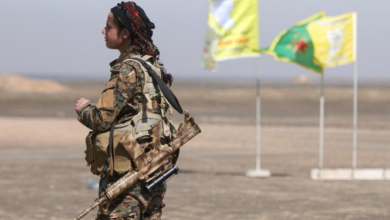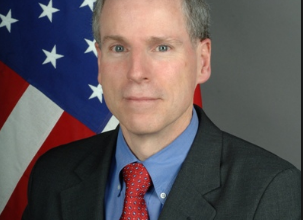It is not about Syrian President Bashar al-Assad staying on for six months or six years. The Geneva talks, we were told, was a forum to try and end the killing in Syria based on UN resolution 2254. The Assad regime and its close associates should depart as soon as possible, if what is left of Syria stands any chance of being stabilized and reconstructed.
Leaving Assad in his palace means no transition or power-sharing will be feasible. Having him even nominally in power means the defeat of the Islamic State of Iraq and Syria (ISIS) will be delayed indefinitely.
For months, we have been led to believe that a deal had been brokered by Washington and Moscow. This deal, if implemented, will see the formation of a transitional Syrian authority, followed by constitutional amendments, then free and fair elections to be held within 18 months – all this hopefully with Assad leaving Syria as a precondition.
For optimists, this is a classic UN recipe that could rescue the Syrians and the region. For cynics, the road to peace is paved with very good intentions but also many handicaps.
Assad’s fate could be one of many hurdles. When meeting the Syrian opposition, UN envoy Staffan de Mistura expresses certainty that a successful deal starts with Assad’s departure. When he meets Russian officials, he is leaned on to remove discussion about Assad’s future from the agenda.
The Geneva talks will continue to scratch the surface of the Syrian problem as long as there is no consensus on Assad’s departure
Mohamed Chebarro
De Mistura discreetly raises the issue when meeting US officials. When meeting leaders of countries that back the Syrian opposition, such as Saudi Arabia and Turkey, the future of Assad is high on the agenda. When meeting Syrian regime officials, De Mistura focuses on the fight against terror and ways to alleviate humanitarian suffering caused by ISIS.
Scratching the surface
The Geneva talks will continue to scratch the surface of the Syrian problem as long as there is no consensus on Assad’s departure. Hundreds of thousands of Syrians have been killed in the five years since the start of the uprising against his rule. We could be looking at a higher death toll this time next year.
In the past year, a million refugees arrived in Europe – next year, this number could double, with or without the EU-Turkey deal. With a lack of progress in Geneva, ISIS is likely to breed more violence in Syria, Iraq and beyond, as we saw in Istanbul, Saudi Arabia, Belgium and France.
Vague diplomatic language used in Geneva has plagued the talks, and Washington is unable to push Moscow for a clear commitment on Assad’s departure. Moscow is biding its time to see what concessions it can win from the West regarding Ukraine, sanctions on Russia, and U.S. missile defense edging east toward former satellite states.
Even if Russia signs a deal, there are no guarantees that Iran will play ball and desert its plans to disrupt Arab countries and control as many Arab capitals as possible. Tehran is always ready to deploy its militias, and recently its army units, to achieve that goal.
Origins and outlook
Removing Assad should be the first step if the Geneva talks are to mature into a working deal. Playing the numbers game that Assad might be removed in six, 18 or 36 months is only fanning the flames of the crisis.
All talk in Geneva seems irrelevant with Assad around. Syria’s crisis was never about power-sharing. It was never a civil war. It was a regime using extreme force to subdue a peaceful Syrian population fed up of dictatorship. Syria is not Iraq or Afghanistan, but it has started to resemble those broken states due to the slow intervention of the West, Turkey, Saudi Arabia and Qatar, compared with a fully committed Iran and Russia in supporting Assad to the end.
Given the Baath- and clan-led system of his regime, even if a transition is achieved, and Assad and his entourage end up living in Tehran, Moscow or Havana, Syria will suffer from his ghosts that will prove difficult to get rid of for several decades. This will be a recipe for discord, further stalemate and governmental failure.
Syria was tailored as a mafia outfit in a shell called a state. The proposals to save the state are a fallacy we keep hearing in Western and UN circles, as this state that Western powers are so keen to preserve may prove a hollow construction once Assad and his cronies have been removed.
alarabiya.net




